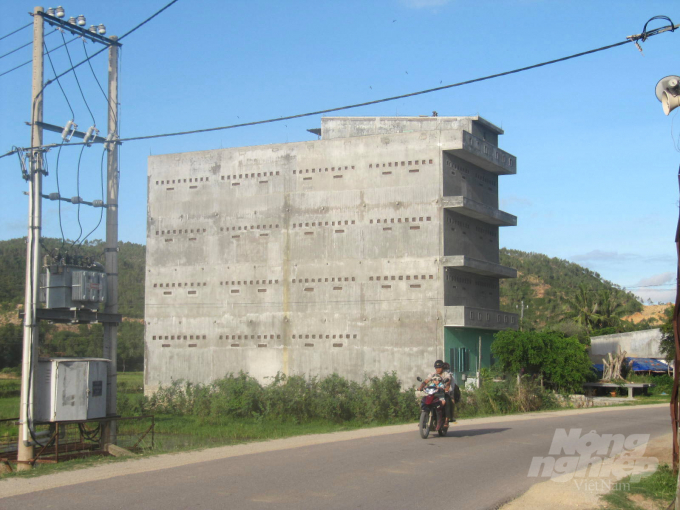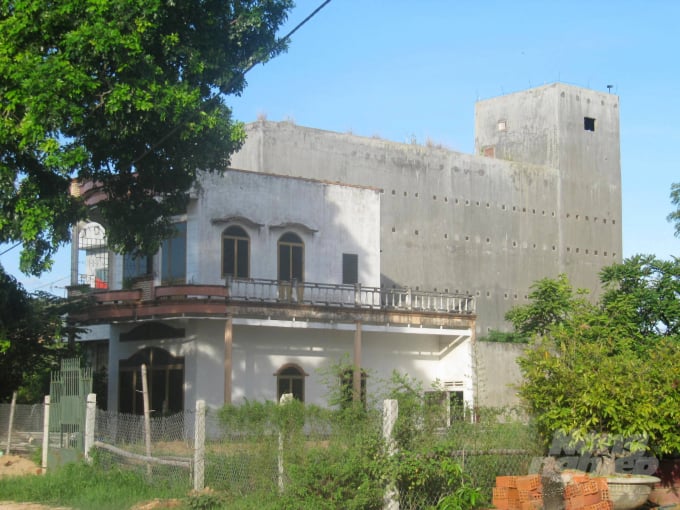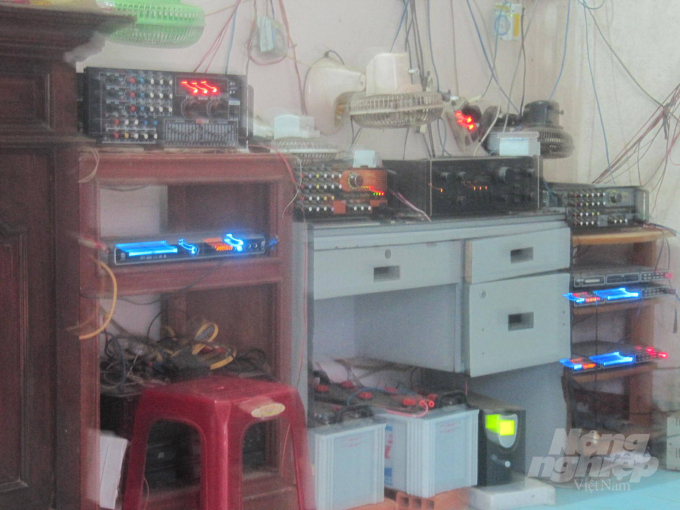November 22, 2025 | 14:15 GMT +7
November 22, 2025 | 14:15 GMT +7
Hotline: 0913.378.918
November 22, 2025 | 14:15 GMT +7
Hotline: 0913.378.918
Binh Dinh is one of the provinces having rapid growth of salangane farming activities in the Central Region. According to Mr. Huynh Ngoc Diep, Deputy Director of the Department of Animal Husbandry and Veterinary of Binh Dinh province, there are 1,100 birds’ nest farming houses in the province, mainly in Hoai Nhon town, Quy Nhon City and Tuy Phuoc district.
Birds’ nest farming has become a business that brings high income for people. This comes from the fact that it is no need to purchase bird breeds, low cost of food, income from birds’ nest farming is very high and abundant. Therefore, birds’ nest farming houses have been developing dramatically in Binh Dinh province, however, mostly in a spontaneous way.

Income from birds’ nest farming is very high and abundant. Therefore, birds’ nest farming houses have been developing dramatically in Binh Dinh province. Photo: Vu Dinh Thung.
This situation has led to noise pollution and environmental pollution resulting from wastes of birds’ nest houses which seriously affect community life. During the past years, many households living near birds’ nest houses could not stand the pollution and had opinions with relevant authorities for urgent settlement.
In response to this situation, the Department of Agriculture and Rural Development of Binh Dinh province has decided to strengthen the management of birds’ nest farming activities, salangane hunting and trapping in the province. The People’s Committee of Binh Dinh province issued the Decision No. 4586 dated 9/12/20219 providing temporary regulations on the management of birds’ nest farming in the province.
Accordingly, the provincial authority has directed to suspense building new, expansion and upgrading of farming houses in the urban wards of Quy Nhon Province, Region 1 and Region 2 of Nhon Binh ward (Quy Nhon Province); all areas of Dap Da ward, Binh Dinh (An Nhon town) and townships of districts; urban residential areas; new urban areas which detailed planning has been approved…since the issuance of the Decision.
Besides, the Department of Animal Husbandry and Veterinary is advising the Department of Agriculture and Rural Development to cooperate with relevant agencies to develop the Draft “Regulation on salangane farming areas in the province” and submit the Provincial People’s Committee and People’s Council for consideration and approval.
Given situtation that the local authority and functional agencies are confused with handling spontaneous salangane farming, Decree No. 14/2021/ND-CP of the Government will help provincial authorities with effective management, supervision of birds’ nest farming activities.

Many birds’ nest houses in Binh Dinh are styled as “Birds’ nest above, houses below”. Photo: Vu Dinh Thung.
“As from 20/4/2021, Decree No. 14/2021/ND-CO regulating the sanction on administrative violations of husbandry will come into efect. The Decree serves as the legal basis for local authorities and agencies to manage birds’ nest farming activities in provinces.”, said Mr. Huynh Ngoc Diep.

A fine of 5 – 10 million VND imposed on “Using sound generator beyond the allowed sound level to lure salanganes” or “Playing sound to lure salanganes during unallowed time period.”. Photo: Vu Dinh Thung.
At the same time, Decree No. 14/2021/ND-CP also provides a fine of 10 – 15 million VND for hunting and luring salanganes for purposes other than birds’ nest farming or scientific research. The fine for organizations is doubled against the above fine for individuals.
In order to achieve sustainable development of birds’ nest farming of the province in the coming time, Binh Dinh Department of Animal Husbandry and Veterinary will cooperate with Binh Dinh Salangane Farmers’ Association and localities to actively propagate and encourage members, birds’ nest farming houses to voluntarily follow the law and regulations on birds’ nest farming; as well as widely disseminate regulations for the good implementation of birds’ nest farming of individuals and organizations; at the same time cooperate with relevant agencies to have specific guidance on building techniques for faming houses, developing standards of farming houses, following the regulations and ensuring the suitability to current situation of the locality.”, said Mr. Huynh Ngoc Diep, Binh Dinh Deputy Director of the Department of Animal Husbandry and Veterinary.
Translated by Boi Thu

(VAN) Viet Nam’s forestry sector is undergoing a comprehensive transformation, strengthening management, protection, and development efforts to maintain ecological security and drive green, sustainable growth.

(VAN) Viet Nam is accelerating efforts to digitize reservoir operations, from real-time data to hydraulic modelling.
/2025/11/21/3348-2-102623_454.jpg)
(VAN) National Assembly delegate Nguyen Thi Lan has proposed adding special mechanisms to attract human resources to the agricultural, forestry, and fishery sectors, addressing the shortage of high-quality personnel.

(VAN) Over the past two decades, the unified legal framework for water resource management has been perfected, becoming a crucial foundation for ensuring national water security.

(VAN) The land-data cleansing campaign in Dien Bien is entering its final stretch, yet weak infrastructure, limited personnel and fragmented multi-period datasets continue to create major obstacles.
/2025/11/20/0204-2-115235_496.jpg)
(VAN) Not only do carbon credits bring a great revenue source, but they also contribute to better forest protection and development. However, this potential remains largely untapped.

(VAN) Applying modern technology is helping environmental monitoring and oversight of management quality.